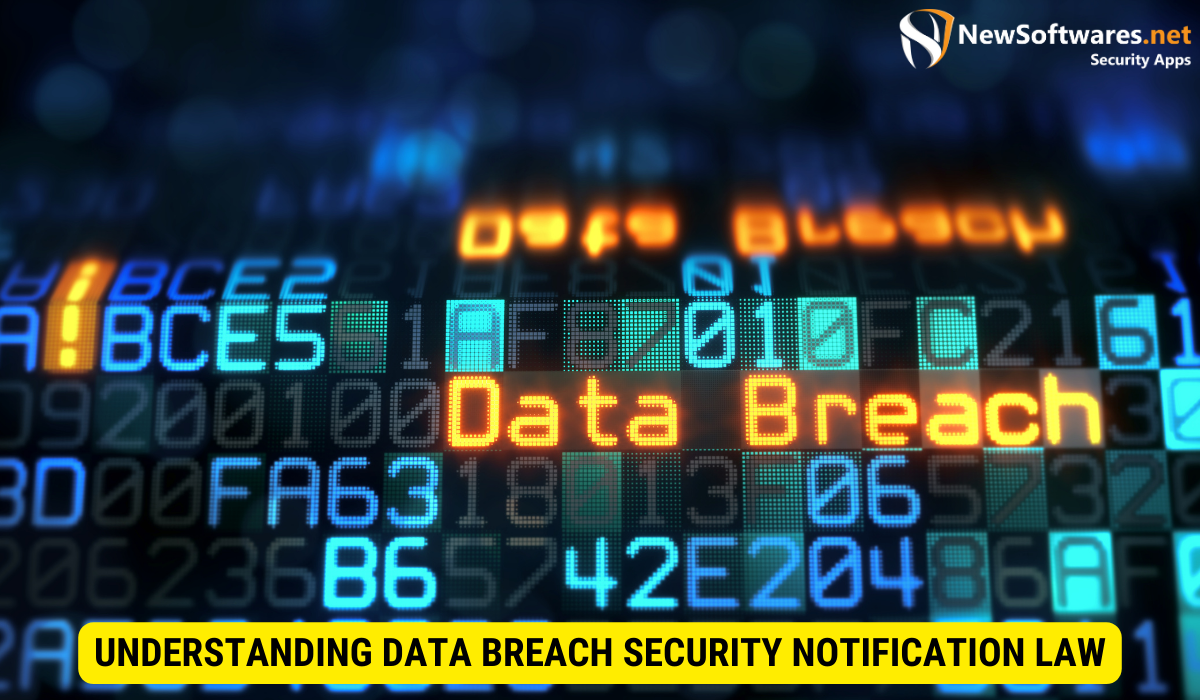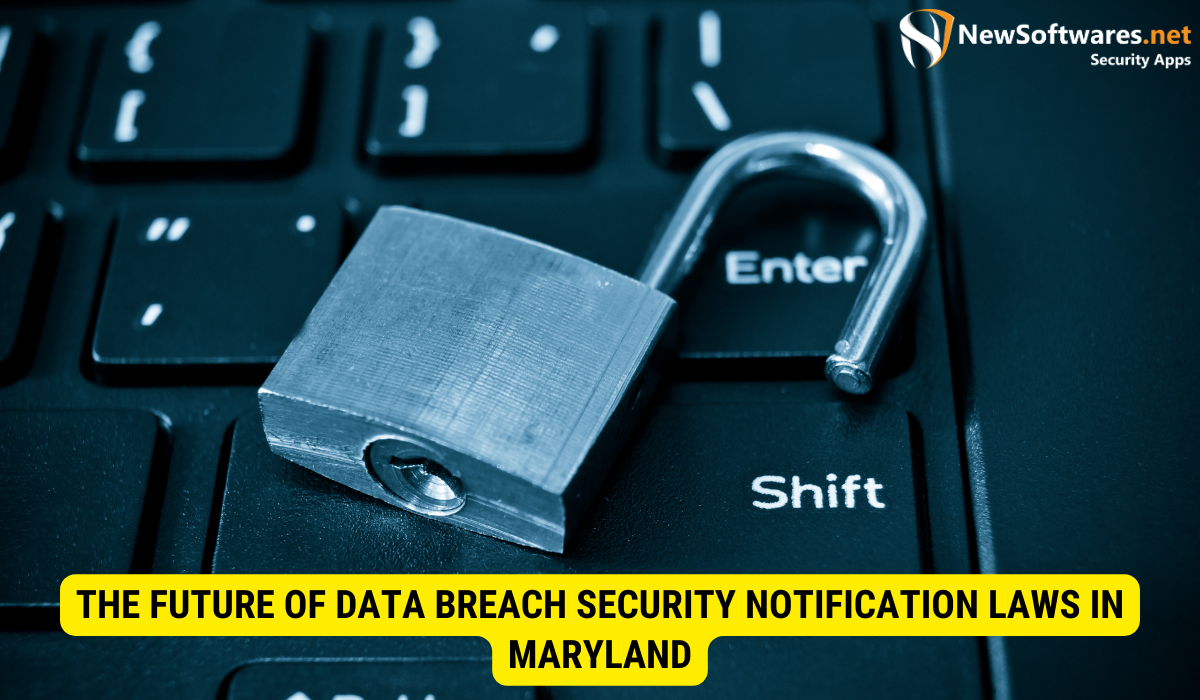Maryland’s data breach security notification law was initially enacted in [year] to protect individuals by mandating that businesses promptly notify affected individuals in case of a data breach. It places significant responsibilities on businesses, aiming to safeguard personal information and mitigate the risks of data breaches.
Maryland is one of several states in the United States that have established laws requiring companies to notify individuals in the occasion of a data breach. The data breach security notification law in Maryland was implemented to protect individuals from widespread identity theft and financial fraud resulting from data breaches. Understanding the specifics of this law, its establishment and its impact is essential for businesses and consumers in Maryland.
Understanding Data Breach Security Notification Law

The Basics of Data Breach Security Notification Law
Data breach security notification laws, such as the one in Maryland, mandate that organizations inform individuals whose personal information may have been compromised due to a data breach. Personal information can include names, social security numbers, financial account information, and more. These laws aim to make sure that individuals are aware of potential risk and can take appropriate actions to protect themselves.
Maryland’s data breach security notification law operates on the principle of accountability. Organizations are responsible for promptly investigating and reporting any breaches, ensuring that affected individuals are notified on time. Failure to adhere to the law’s requirements can result in significant legal and financial penalty for businesses.
The Importance of Data Breach Security Notification Law
Data breaches are unfortunately common in today’s digital age, and the consequences can be severe. By establishing data breach security notification laws, like the one in Maryland, the state recognizes the need to protect individuals and safeguard their sensitive information. Prompt notification allows affected individuals to monitor their accounts for suspicious activity, freeze or monitor their credit, and take appropriate action to mitigate potential harm.
Furthermore, data breach security notification laws also promote transparency and accountability in the business sector. Companies are incentivized to invest in robust cybersecurity systems and protocols to prevent breaches from occurring in the first place. Should a breach occur, this legislation ensures that organizations prioritize quick detection, investigation, and response, ultimately minimizing the potential impact on individuals and the wider community.
The Establishment of Maryland’s Data Breach Security Notification Law
The Timeline of the Law’s Establishment
Maryland’s data breach security notification law was established to protect the rights of individuals and address the growing concern about data breaches. The specific timeline of its establishment spans several years, with various updates and amendments introduced to adapt to the evolving landscape of cybersecurity.
The initial version of Maryland’s data breach security notification law was enacted in [year] to protect individuals’ personal information in the face of data breaches. It established the legal requirement for businesses to notify affected individuals within a specific timeframe after discovering a breach. Since then, the law has undergone several revisions to enhance its effectiveness and keep pace with emerging technological advancements and changing cyber threats.
Key Figures in the Law’s Establishment
While establishing Maryland’s data breach security notification law, various key figures were crucial in bringing attention to the issue and advocating for protecting individuals’ data.
One such figure is [Name], a state legislator who recognized the need for legislation to combat the increasing frequency and severity of data breaches. Through their efforts, they championed the cause and rallied support among fellow lawmakers, ultimately resulting in the introduction and passage of the law.
In addition to individual legislators, industry experts, cybersecurity professionals, and consumer advocacy groups played a significant role in shaping Maryland’s data breach security notification law. Their expertise and insights helped ensure that the law addressed the specific challenges businesses and individuals face in the digital age.
The Provisions of Maryland’s Data Breach Security Notification Law
Who is Affected by the Law?
Maryland’s data breach security notification law applies to many businesses and organizations operating within the state. The law covers entities that own, license, or maintain personal information belonging to Maryland residents. This includes businesses, government agencies, non-profit organizations, and other entities within the law’s scope.
Businesses and organizations subject to this law must understand their obligations and responsibilities. Compliance with the law’s provisions is crucial to avoid legal repercussions and protect individuals and their sensitive data.
What Constitutes a Data Breach Under the Law?
Maryland’s data breach security notification law clearly defines what constitutes a data breach. According to the law, a data breach occurs when unauthorized individuals acquire or reasonably believe to have acquired personal information that compromises such information’s security, confidentiality, or integrity.
It is important to note that the law specifies that these breaches can occur through various means, including hacking, improper disposal, theft, or loss of electronic or physical records containing personal information. The law aims to encompass a broad range of potential breaches that can expose individuals to identity theft & other forms of financial fraud.
The Impact of Maryland’s Data Breach Security Notification Law
The Law’s Effect on Businesses
Maryland’s data breach security notification law significantly impacts businesses operating within the state. Compliance with the law’s provisions obligates businesses to maintain robust cybersecurity measures, promptly detect and investigate potential breaches, and notify affected individuals promptly.
Businesses must develop and implement comprehensive data breach response plans to address potential breaches effectively. These plans often include strategies for identifying, containing, remediating, and recovering from a breach. Additionally, businesses may consider obtaining cyber insurance coverage to mitigate the financial risks associated with data breaches.
While the law imposes certain burdens on businesses, it also encourages proactive measures to prevent breaches. Businesses can significantly decrease their risk of data breaches and associated legal and financial consequences by investing in strong cybersecurity systems, regularly updating software, and promoting employee awareness of potential threats.
The Law’s Effect on Consumers
Maryland’s data breach security notification law is designed to protect consumers from the possible harm caused by data breaches. The law ensures that affected individuals are promptly notified if their personal information is compromised, allowing them to take appropriate action to protect themselves from identity theft and financial fraud.
When individuals receive a notification of a data breach, it is important to carefully review the information the affected organization provides. This can include steps to monitor financial accounts, enable credit freezes, update passwords, and be vigilant for any signs of suspicious activity. By taking these precautions, individuals can protect their personal information and minimize the potential impact of a data breach.
The Future of Data Breach Security Notification Laws in Maryland

Potential Changes and Amendments
As technology evolves and cyber threats become extra sophisticated, data breach security notification laws will likely undergo further changes and amendments in Maryland. The state legislature remains committed to addressing emerging challenges and protecting individuals’ personal information.
Potential changes to the law may include stricter reporting requirements, expanded definitions of personal information, and increased penalties for non-compliance. Lawmakers will closely monitor developments in cybersecurity and work to enact legislation that effectively mitigates the risks associated with data breaches.
The Role of Technological Advancements in Future Laws
Technological advancements will heavily influence the future of data breach security notification laws in Maryland and beyond. As new technologies emerge, for example (AI) artificial intelligence and blockchain, lawmakers will need to explore their potential role in enhancing data security and providing more robust breach detection and prevention methods.
Additionally, advancements in data encryption, multi-factor authentication, and secure data-sharing protocols may shape future legislation surrounding data breach security notification. By effectively leveraging these technologies, lawmakers can create a safer digital environment for individuals and businesses.
Key Takeaways
- Maryland has established a data breach security notification law to protect individuals from the risk associated with data breaches.
- The law obligates businesses to promptly investigate, report, and notify affected individuals in case of a breach.
- Understanding who is affected by the law and what constitutes a data breach is crucial for compliance.
- The law significantly impacts both businesses and consumers, encouraging proactive cybersecurity measures.
- Technological advancements and changing cyber threats will shape the future of data breach security notification laws in Maryland.
FAQs
What is the purpose of Maryland’s data breach security notification law?
Maryland’s data breach security notification law aims to protect individuals by demanding businesses to notify them in case of a data breach. This allows exaggerated individuals to take appropriate action to protect themselves from individuality theft and financial fraud.
Who is responsible for complying with Maryland’s data breach security notification law?
Maryland’s data breach security notification law applies to many businesses and organizations operating within the state. Entities that own, license, or maintain personal information belonging to Maryland residents are responsible for compliance.
What should businesses do to comply with Maryland’s data breach security notification law?
Businesses subject to Maryland’s data breach security notification law should invest in robust cybersecurity systems, develop data breach response plans, promptly investigate potential breaches, and notify affected individuals on time. Compliance with the law’s provisions is crucial to avoid legal and financial repercussions.
How does Maryland’s data breach security notification law impact consumers?
Maryland’s data breach security notification law ensures that consumers are promptly notified if their personal information is compromised in a data breach. This allows affected folks to take appropriate action to protect themselves, such as monitoring financial accounts and enabling credit freezes.
Will Maryland’s data breach security notification law undergo further changes?
Maryland’s data breach security notification law will likely undergo further changes and amendments in response to emerging technological advancements and evolving cyber threats. Lawmakers will continue to prioritize the protection of individuals’ personal information.
Conclusion
Maryland’s establishment of a data breach security notification law demonstrates its commitment to protecting individuals and their personal information in an increasingly digitized world. This law places significant responsibilities on businesses to promptly investigate and report data breaches, ensuring that affected individuals receive timely notifications to protect themselves from potential harm.
As technology advances and cyber threats evolve, businesses and consumers must stay informed and adapt to the changing landscape of data security. By understanding the provisions and impacts of Maryland’s data breach security notification law, businesses can mitigate their risk of breaches, and consumers can take appropriate measures to safeguard their personal information.
The future of data breach security notification laws in Maryland holds great potential for further enhancements and adaptations as lawmakers work to address emerging challenges and protect the rights of individuals in an increasingly interconnected world.
